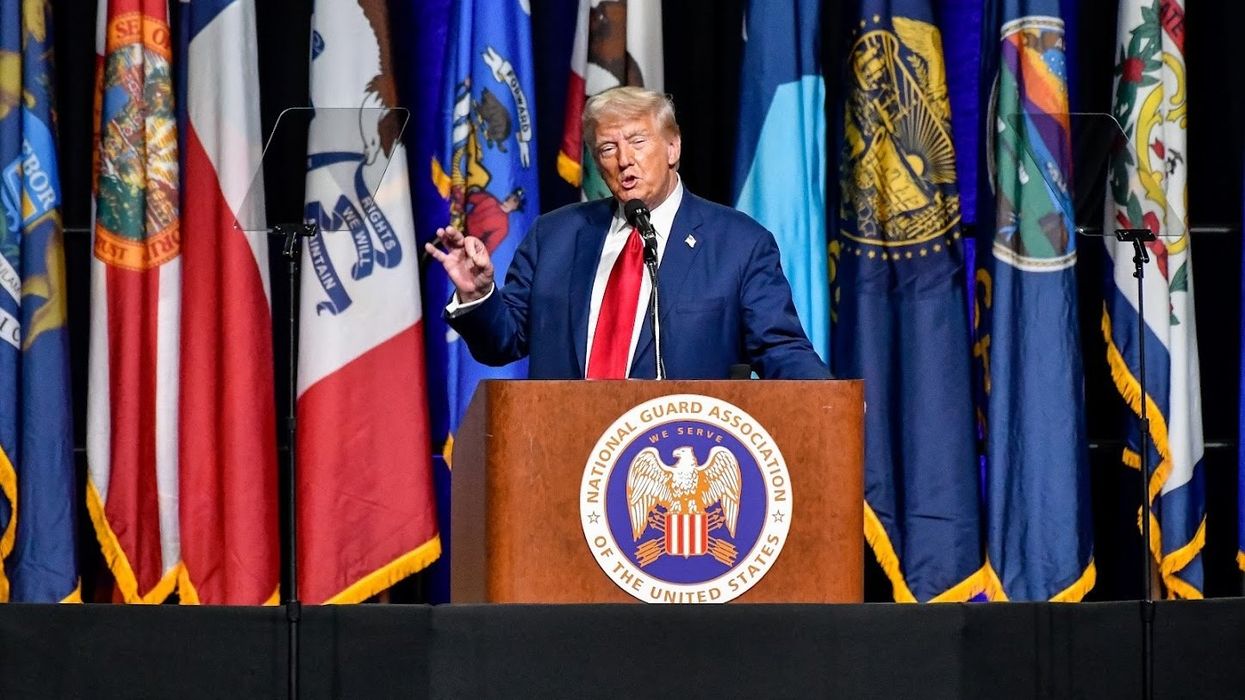Johnson is a United Methodist pastor, the author of "Holding Up Your Corner: Talking About Race in Your Community" and program director for the Bridge Alliance, which houses The Fulcrum.
The 2024 presidential campaign is shaping to be a racial reckoning for America.
With Vice President Kamala Harris positioned to shatter the glass ceiling as the first woman and person of color in the Oval Office and Donald Trump's candidacy fanning the flames of racial hatred, the election is laying bare the nation's ongoing struggle with whiteness and racial justice. As a pastor and advocate for racial reconciliation, I believe this moment will test our democracy's commitment to liberty and justice for all.
Whiteness isn't just about skin color; it's about the privileges and power bestowed to those perceived as white in a society built on racial hierarchy. America was founded by white men of property who established a system where whiteness equaled power — advantages that persist to this day. Whiteness is often invisible to those who possess it, but it shapes every aspect of American life. It's a fluid concept, defined in opposition to other racial identities and intersecting with factors like gender, class and nationality.
Whiteness is a powerful social construct that must be acknowledged and dismantled if we hope to achieve true democracy.
The influence of whiteness on American politics runs deep. Politicians have long used racial dog whistles, subtle references to race that can be interpreted as racist by some. In contrast, others may see them as innocuous in mobilizing white voters. Trump's campaign exploited this tactic, demonizing immigrants and endorsing white nationalist rhetoric.
Such language has real-world consequences, emboldening bigotry and dividing the nation. Policies also entrench racial inequality. Recent voting restrictions, predominantly in Republican-led states, have disenfranchised voters of color. These actions are echoes of Jim Crow laws and segregation, perpetuating a cycle of racial hierarchy.
As a person of faith, I see a theological imperative to confront racial injustice. Christianity teaches that the created are endowed with dignity and worth in God's image. Disciples of Christianity are to love our neighbors, seek justice and care for the marginalized. Yet religion has often been complicit in racial hierarchy, from justifying slavery to the racial homogeneity of many congregations. This legacy is a stain on religious communities, a betrayal of our principles. People of faith must commit to addressing racial injustice as a moral imperative.
The construct of whiteness masks the systemic forces undermining our democracy. We must confront and dismantle racial hierarchy if we hope to build a just, inclusive society that reflects America's multiracial reality. Such an exercise requires acknowledging our biases, engaging in difficult conversations and using privilege to amplify marginalized voices. For instance, if you're a white person in a position of power, you can actively promote diversity in your workplace or community.
The future of our nation depends on our willingness to face the unfinished business of race and create a more perfect union for all. This November is a choice between two visions of America: one rooted in racial hierarchy and another in multiracial democracy. The former perpetuates a system where whiteness confers power and privilege. At the same time, the latter envisions a society where everyone, regardless of race, can thrive.
One candidacy represents a step towards a more inclusive America where everyone, regardless of race, can thrive. The other candidacy is a reaction against this progress, a desperate attempt to cling to power and privilege.
Confronting whiteness means dismantling systems that have entrenched racial inequality for centuries. It means engaging in difficult conversations about race and privilege, bias and bigotry. This will not be easy. But it is the only way forward.
The noblest example of a democratic republic is that its populace is valued, has a voice and can thrive. The 2024 election could be a moment of truth.



















 From left to right: Gabriel Cardona-Fox, Bud Branch, Joe Concienne
From left to right: Gabriel Cardona-Fox, Bud Branch, Joe Concienne 
Trump & Hegseth gave Mark Kelly a huge 2028 gift